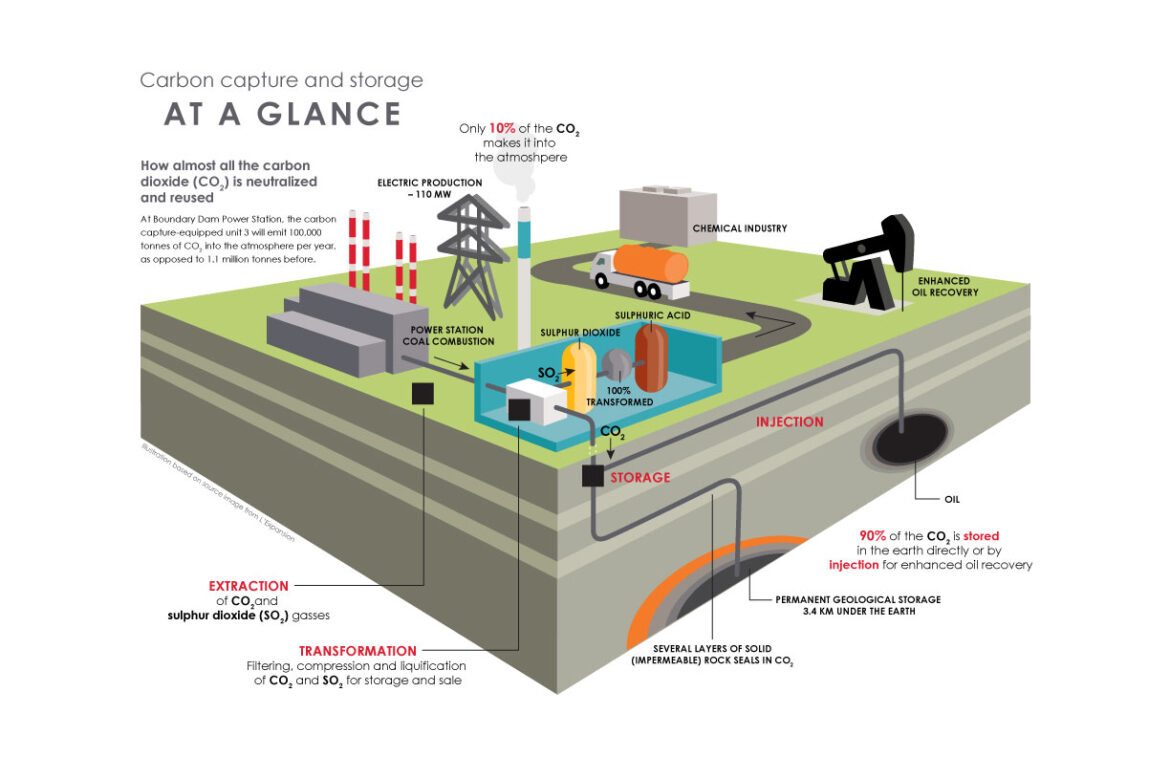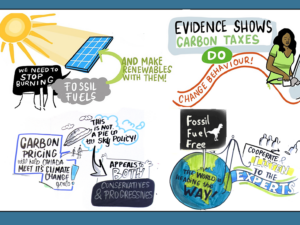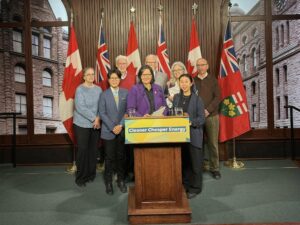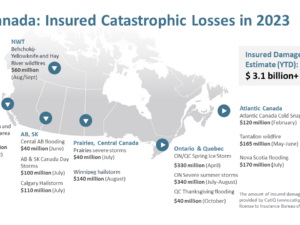
Carbon Capture and Storage (CCS) is a general term for a range of different industrial processes that can separate carbon dioxide (CO2) emissions from smokestacks and store it underground indefinitely as toxic waste. CCL does not oppose or support any specific technologies. It should be noted that previous studies found that without adequate carbon pricing, CCS deployed at scales required to meet climate targets is unlikely. In June 2022, the International Energy Agency reported that CCS facilities currently capture almost 45 megatonnes of CO2 globally, but this needs to increase. Project developers have announced ambitions for over 200 new capture facilities to be operating by 2030, capturing over 220 Mt CO2 per year. However, only around 10 commercial capture projects under development have official financial approval as of June 2022. Nevertheless, even at such a level, CCS deployment would remain substantially below what is required in the Net Zero Scenario by 2050. This is now even more urgent in that we are in a Net Zero Scenario by 2040 (IPCC AR6 Synthesis Report, March 2023). An April 4, 2023 analysis in Nature concluded: Humanity has never removed an atmospheric pollutant at a global, continental or, even, regional scale — we have only ever shut down the source and let nature do the clearing up. This is the case for chlorofluorocarbons and stratospheric ozone destruction, for sulfur dioxide and acid rain, and for sulfur and nitrogen oxides and photochemical smog. We must be prepared for CCS to be a failure, leaving us to rely on the environment to stabilize atmospheric CO2 over thousands of years. This is another argument for rapid decarbonization. CCL Canada is fully supportive of the UN High-Level Expert Group on net-zero commitments (HLEG) report Integrity matters: Net zero commitments by businesses, financial institutions, cities, and regions. One of the key recommendations is that technologies must come as advertised. One of the key conclusions of the final IPCC AR6 synthesis report (March 2023) was clear – existing and currently planned fossil fuel projects are already more than the climate can handle. Given the inequitable and catastrophic impact that exceeding a global temperature rise of 1.5°C will have on everything and everywhere, planning for any new fossil fuel infrastructure on the premise that it can be reversed by unproven carbon capture and sequestration capacity is indefensible.Laser Talk: CCL Canada’s position on Carbon, Capture, and Sequestration





